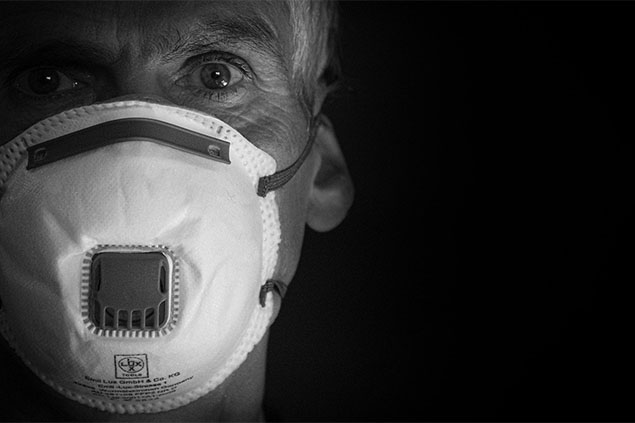Virtual Work
Until recently, many law firms looked down on associates working exclusively from home. Remote work was seen as nonproductive and even unprofessional. But COVID-19 has placed virtual work in a new light. In response to stay-at-home orders, both lawyers and supporting staff quickly transitioned to remote working environments… and many did so successfully.
The necessity of working from home proved that legal work can be done effectively and efficiently, even when completed away from the office. With these new revelations, it is altogether probable that remote work will increasingly become a new normal within many law firm cultures.
Social Distancing
It is also very possible that current social distancing measures will stick around for quite a while. According to many medical professionals, these measures are not only effective at combatting COVID-19, but also against the general spread of germs and illness.
Law offices will accommodate distancing recommendations by implementing various policies, including:
- Staggered Work Schedules – By varying work schedules, firm leaders can limit the number of employees physically located within the office at any given time. For example, some members may work in the office during the morning hours and remotely during afternoon hours. Other firm members may work remotely during morning hours and within the office during the afternoon. Leaders may also choose to have staff members come into the office on alternating days.
- Gathering Limits – The days of crowded conference rooms and packed firm outings may be a thing of the past. Instead, these types of gatherings will occur with virtual meetings and smaller firm events. COVID-19 has proven that in-person meetings are not always necessary, and virtual meetings will likely continue long after this pandemic is done.
- Virtual Client Meetings – Law firms may also limit client visits to the office to promote social distancing. Initial consultations may be done by telephone. Firms will also increase the use of virtual meeting tools when communicating with potential and existing clients. Settlement conferences and mediations may also move into the virtual environment.
Safer Offices
Firm leaders will make the physical law office safer and more sanitary for lawyers, staff, and client visitors. Some firms may require personal protective equipment, such as face masks and gloves, while others may choose to provide these items within the office.
Other sanitation measures may include:
- Temperature checks to screen for employee illness
- No-touch hand sanitizing stations
- Frequent cleaning of shared spaces and equipment
- Plastic barriers between attorneys and office visitors
Employee Wellness
COVID-19 has also placed a spotlight on employee wellness and the role that law firms should play in promoting optimal physical and mental health among its employees. As such, the new normal will likely include sick leave measures that encourage employees to stay home when sick instead of coming to work and spreading their illness to other employees.
Lawyers are notorious for powering through and working even when feeling under the weather. The new law firm will discourage this type of behavior instead placing value on health and providing sufficient sick leave policies.
Law firms may also implement counseling resources to help staff members deal with the mental and emotional challenges of the pandemic. Some employees may have been personally impacted by COVID, personally of through family and friends. Recognizing these challenges, firm leaders may provide employees with counseling options or expand health insurance coverage to include mental health resources.
Law firms may also take extra steps to protect the most vulnerable members of their staff. Workers over 65 years old, or those with underlying health conditions, may continue working remotely even after most staff members return to the office.
Practice Area Changes
For some firms, the new normal may include a transformation of their services and business model. Some legal practice areas will see a decrease in clients due to the coronavirus, but these changes also present an opportunity for growth among other practice areas.
Firms may take on practice areas that show more promise in response to COVID-19, such as:
- Bankruptcy – As individuals and businesses seek protection from the financial challenges of the pandemic, bankruptcy cases are likely to rise.
- Corporate Law – Corporations will seek legal guidance as they reorganize in response to the virus.
- Employment Law – As employers and employees traverse the uncertainties of this time, they need legal guidance and protection.
- Health Law – The virus has also brought up various legal questions about the delivery of health services.
As firms implement these practice area changes, they will also require additional training, skill-building, and educational opportunities for staff members. Firm members may be met with greater online training and instruction as part of the new legal landscape.
The New Normal of Law Firms
Welcome to the new normal of law firms. While much is uncertain right now, it is clear that law firms must adapt to the new risks brought about by COVID-19. Law firm leaders must challenge their preconceived notions and make room for necessary changes. Far too many law firms found themselves ill-prepared for the disruption brought about by coronavirus, but this is the perfect time to implement procedures that protect and prepare for the next unforeseen emergency.
About Erika Winston:
Erika Winston is a freelance writer with a passion for law. Through her business, Personal Touch Edits, she helps legal professionals deliver effective written messages. Erika is a regular contributor to TimeSolv and a variety of other publications.

